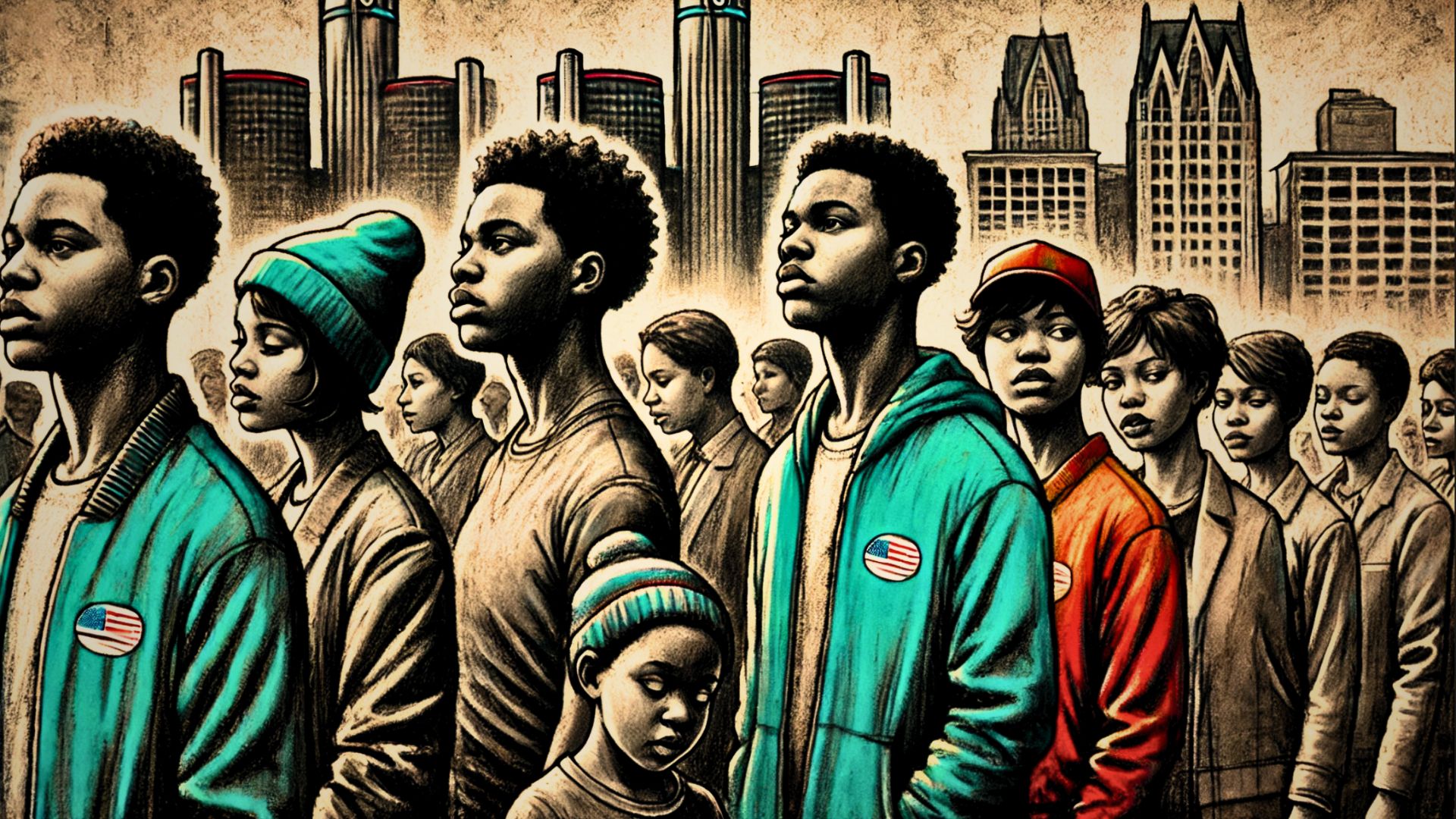(HKR-09-17-24) The Detroit Townhall fireside chat at Huntington Place put on by the Black Church Pac centered around the vital theme of multicultural organizing, featuring prominent voices such as Rasheim Wright from the Service Employees International Union (SEIU), Nick Rathod from the AAPI Victory Fund, Bishop Talbert Swan from Black Church PAC, and Dujuan Kennedy, known as Zoe, from LIVE FREE Detroit. Moderated by Nick Rathod, the discussion sought to address the pressing need for solidarity among diverse communities of color and the transformative potential of unified political action.
Rathod opened the dialogue by acknowledging the historical divisions among communities of color, specifically highlighting how Black, Latino, and Asian communities often remain siloed due to immediate survival needs and competition for limited resources. He articulated the crucial question: “What would it mean if we decided to work together across these silos?” Rathod posited that such collaboration could fundamentally alter the political landscape, giving these communities the power to influence elections and demand that politicians respond to their collective needs. His emphasis on unity resonated throughout the discussion, setting the stage for a deeper exploration of how to dismantle barriers between these communities.
Bishop Talbert Swan, bringing decades of social justice activism to the panel, highlighted the importance of economic justice as a cornerstone of political engagement for the Black community. “If a Black woman today makes 66 cents for every dollar that a white man makes,” he noted, “then it’s clear that economic disparities are not just a talking point but a lived reality.” His remarks drew attention to the systemic issues that hinder progress, framing them as interconnected with political engagement. He called for a coalition across various racial and ethnic groups, stating, “When we talk about economic justice, criminal justice, and voting, it’s all connected. We need to work together to change the narrative.” Swan’s impassioned plea for unity and accountability among communities of color set a powerful tone for the session.

Dujuan Kennedy, or Zoe, shared a poignant perspective on the challenges faced in his community, especially concerning violence and its psychological impacts. He candidly expressed the skepticism many feel toward the electoral process, saying, “Our people are influenced by popular culture and have seen little return on their investments in politicians.” He emphasized the necessity of ongoing political education, stating, “We need to mobilize our people not just during election seasons but consistently throughout the year.” Zoe’s call for strategic engagement highlighted the importance of building trust and accountability in the political process, underscoring the need for voters to see tangible results from their participation.
As the conversation progressed, the panelists delved deeper into the issue of accountability. Rasheim Wright passionately addressed the need for voters to hold politicians accountable not only at election time but throughout their terms in office. He asserted, “We have to demand that our elected officials deliver on their promises. It’s not enough to vote; we need to actively engage and hold them responsible for their actions.” This sentiment was echoed by Swan, who stressed that community members must evaluate the performance of their elected representatives, stating, “We need to stop settling for symbolism over substance. You are the boss; they work for you. If they’re not doing a good job, let them know they won’t renew their contract.”
The dialogue also tackled the challenge of fostering trust and collaboration among diverse communities. Zoe emphasized the necessity of addressing anti-Black sentiment present in various circles, urging participants to engage in open discussions. “We need to have honest conversations about our differences,” he stated. “True unity can only be achieved through dialogue and mutual support.” The importance of these discussions was reiterated by Rathod, who underscored the need for a collective strategy to combat anti-Blackness within and across communities, reinforcing the notion that solidarity is crucial for achieving shared goals.
In concluding the session, the panelists called for sustained activism beyond election cycles, reminding attendees that organizing must be a continuous effort. “Voting is just the start,” Wright noted. “We must work the levers of power in our government to ensure we achieve the outcomes we need to sustain and protect our communities.” Bishop Swan echoed this sentiment, urging attendees to “count your cousins” and hold each other accountable for participation in the electoral process. The chat ended on a hopeful note, with the panelists emphasizing that unity and collaboration among communities of color can unlock significant political power and drive meaningful change.
Overall, the Detroit Townhall fireside chat provided a powerful platform for leaders to share insights, strategies, and personal experiences, reinforcing the message that collective action and sustained engagement in the political process are essential for driving social change. The voices of these panelists illustrated the potential for a unified approach to organizing across cultural lines, ultimately empowering marginalized communities to advocate for their rights and interests in the political arena.


Leave a Reply